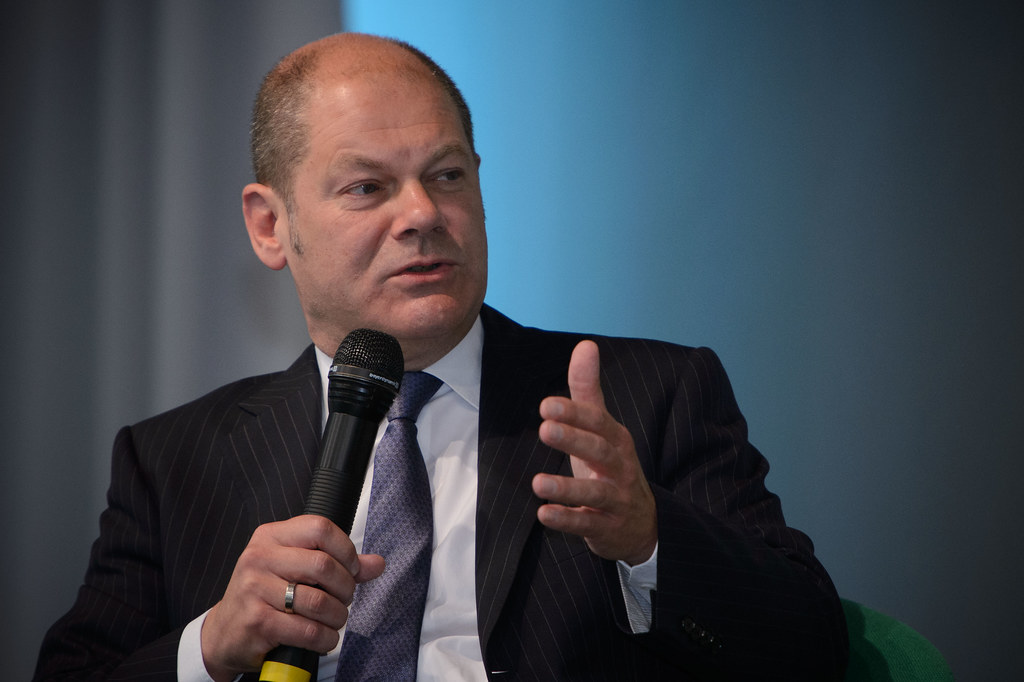Here are the 3 hypotheses of government after the elections in Germany

The results of the elections in Germany and the government scenarios. Pierluigi Mennitti's point from Berlin
It's like going into extra time in a football match. And it almost doesn't matter which of the two big parties (the SPD or the Union) will be able at the end of the count to put its nose in front of the other. With the progress of the count and the refinement of the projections, a slight advantage of the SPD seems to be consolidating, between 1 and 1.2% depending on the institutions. To place first with a clear advantage would mean, according to German political practice, at least winning the right to the first move.
But it is not certain that it will then be the decisive one. The Merkel era ends with the shattering of the old German political system based on two large mass parties and with the emergence of a jagged landscape in which forces rebalance. Germany is entering a phase of uncertainty, which it would be premature to define as an "era", but which will certainly last for several weeks, perhaps months. There are already those who suspect that it will still be up to Angela Merkel, as chancellor in office of a government of ordinary administration, to deliver the traditional year-end speech. And so break the duration record that today belongs to Helmut Kohl, 5869 days in office. The fatal date will be December 17th. We will see.
No clear winner has come out of the polls, but a series of possibilities, of alliances, which will engage the parties involved in difficult negotiations.
Jamaica, Semaphore, Germany, the kaleidoscope of colors of the German parties offers enough ideas to imagine future coalitions, even a re-edition of the Grosse Koalition is not excluded from the numbers. Everything comes back into play and the third and fourth arrivals, the Greens and the liberals, who can pull the inertia of the negotiations towards a government led by Armin Laschet, or one in the hands of Olaf Scholz, take center stage.
At the starting line the positions of these two parties are clear: the Greens would like to participate in a Scholz government, the liberals in a Laschet executive. Both, environmentalists and liberals, however, are decisive for a majority of three and the two aspiring chancellors will have to find the right political and personal solutions to convince them to govern with them.
Looking at the programs, to which we provided a robust summary on the eve of the vote, does not help to solve the knot of the future majority in advance: there are many points of contact for the constitution of a Jamaica alliance (Union, Greens, Fdp), but neither there are just as many for a Semaforo coalition (Spd, Verdi, Fdp).
Laschet and Scholz arrive at the negotiations driven by mixed feelings. The leader of the Union had to collect the worst result of all time, the Union has lost almost 9 points compared to four years ago and the faded figure of the candidate has weighed heavily in this result. On the contrary, Scholz has almost resurrected an SPD which at the start of the electoral campaign was quoted at around 15%, and which instead shows up at the end of the race with 5 points more than in the previous elections. But the polls of recent weeks had already registered Scholz's recovery and even overtaking, so the final near-tie draws a grimace of disappointment on the face of the SPD candidate and raises unexpected hopes in that of the Union.
In short, a whole new game begins, in which it will be essential for the two suitors not to make missteps. In 2005, at the end of an electoral sprint to the last vote like this time, Gerhard Schröder lost the chancellery to Angela Merkel due to a sudden joke during the post-vote televised debate.
The only certain thing, together with the observation that the next one will be the largest Bundestag ever with 730 deputies, is that the times for the formation of the new government will be long and probably not even "peaceful". In the first post-election statements Laschet, who appeared on the stage of the CDU headquarters with Angela Merkel behind him, has already said that his party has received a mandate to avoid a left-led government and that he will do everything to form one led by 'Union. Scholz was more cautious, also in the belief that the updating of the real results would have consolidated a sufficient advantage for the SPD and that perhaps in the end it counts Laschet will be more involved in internal reckoning rather than in the formation of a government.
But on the evening that has just begun, it will continue until late at night, with the counting of votes that will give more certain results and the parties engaged in the first meetings on the evaluation of the vote and on future negotiations.
This is a machine translation from Italian language of a post published on Start Magazine at the URL https://www.startmag.it/mondo/ecco-le-3-ipotesi-di-governo-dopo-le-elezioni-in-germania/ on Sun, 26 Sep 2021 18:30:14 +0000.
